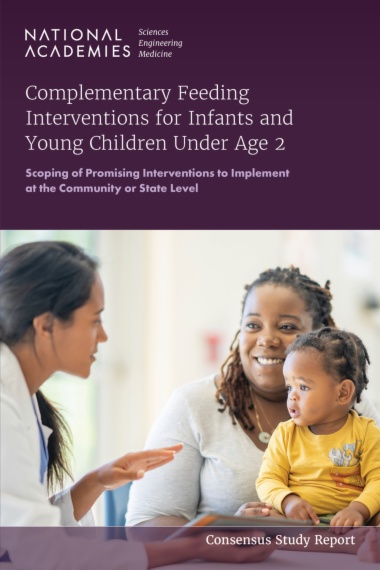

Complementary feeding refers to the introduction of foods other than human milk or formula to an infants diet. In response to a request from the Centers for Disease Control and Prevention, the National Academies Health and Medicine Division convened the Committee on Complementary Feeding Interventions for Infants and Young Children under Age 2 to conduct a consensus study scoping review of peer-reviewed literature and other publicly available information on interventions addressing complementary feeding of infants and young children. The interventions studied took place in the U.S. and other high-income country health care systems; early care and education settings; university cooperative extension programs; the Special Supplemental Nutrition Program for Women, Infants, and Children (WIC); home visiting programs; and other settings. This consensus study report summarizes evidence and provides information on interventions that could be scaled up or implemented at a community or state level.